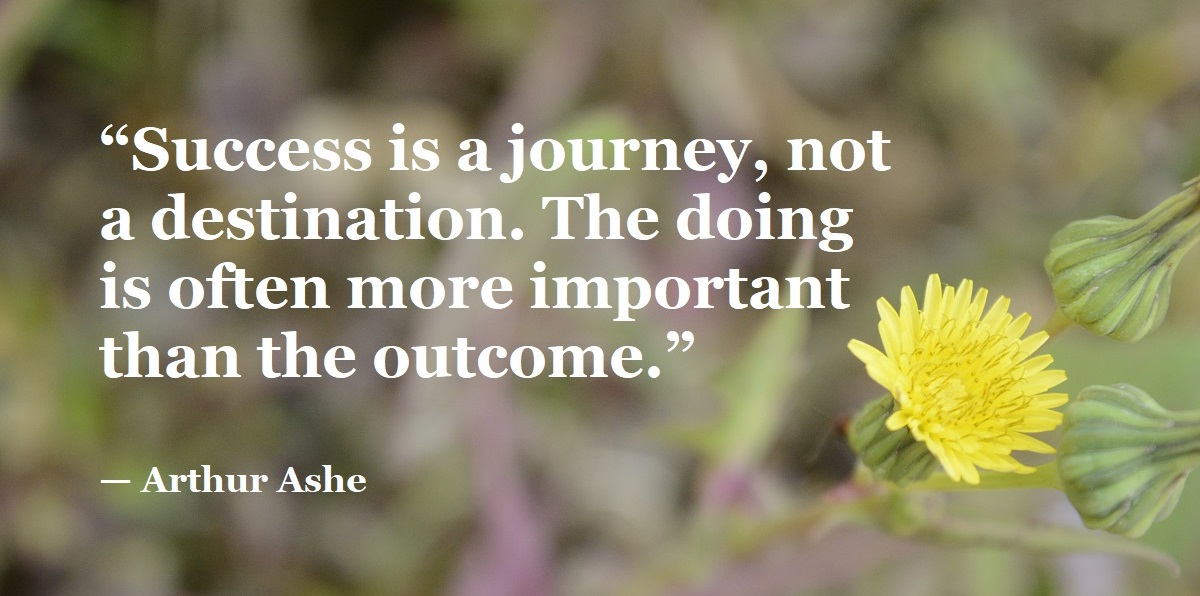I want it all, but I’m only human
As I slump in my leather desk chair with the night’s work sprawled out in front of me, I check the time: 1:00 a.m.. I sigh, knowing how little I will sleep that night. But what’s new? I glance at my agenda and see that only half of what I need to accomplish have been crossed off. A tear drops on my AP US History assignment as I struggle to finish all the Key Identifiers. I fall back into my seemingly comfy chair, exasperated by the abundance of articles I need to edit for my school paper. The tab of my essay continues to stare. The thought that never seems to leave the back of my head shows itself once again: Is this all really worth it?
I want it all. I want to excel in all of my classes and balance many time-consuming extracurriculars. I want to excel in dance like the people who dedicate their entire lives to the art. I want to go to Columbia just like the people who have 5.0 weighted GPA. I want to be a social butterfly, just like the people who could care less about their GPA. I want everything, but I’m only human.
Now, you must be thinking: What does a girl like you, who has opportunities knocking at your door every day, have to complain about? The blatant truth is, I shouldn’t. Living in a semi-wealthy family in an upper wealth tax bracket, I really do have everything. There is a roof over my head, clothes on my back, and food on the table; things others are breaking their backs to attain. I have little to no concerns about my future college tuition. I have many friends who I can rely on and a significant other who is only a phone call away. I belong to a high school that is ranked 207th in the nation and 29th in the state, where I have countless opportunities to further my education. Despite the divorced parent situation, my family and parents are always looking out for me and only want the best for their 16-year-old daughter. Of course, I do appreciate my life and how lucky I am to be living the way I do today. I feel so lucky to have this lifestyle, to not struggle for basic needs like so many 16-year-old girls do. So when I complain about how late I stay up to finish assignments for my classes or how exhausted I am from my dance practices, people only roll their eyes at another spoiled brat with first world problems. They tell me that there are people out there who barely have enough to eat, let alone an education. What do I have to complain about?
As I slump in my leather desk chair with the night’s work sprawled out in front of me, I check the time: 1:00 a.m.. I sigh, knowing how little I will sleep that night. But what’s new? I glance at my agenda and see that only half of what I need to accomplish have been crossed off. A tear drops on my AP US History assignment as I struggle to finish all the Key Identifiers. I fall back into my seemingly comfy chair, exasperated by the abundance of articles I need to edit for my school paper. The tab of my essay continues to stare. The thought that never seems to leave the back of my head shows itself once again: Is this all really worth it?
I want it all. I want to excel in all of my classes and balance many time-consuming extracurriculars. I want to excel in dance like the people who dedicate their entire lives to the art. I want to go to Columbia just like the people who have 5.0 weighted GPA. I want to be a social butterfly, just like the people who could care less about their GPA. I want everything, but I’m only human.
Now, you must be thinking: What does a girl like you, who has opportunities knocking at your door every day, have to complain about? The blatant truth is, I shouldn’t. Living in a semi-wealthy family in an upper wealth tax bracket, I really do have everything. There is a roof over my head, clothes on my back, and food on the table; things others are breaking their backs to attain. I have little to no concerns about my future college tuition. I have many friends who I can rely on and a significant other who is only a phone call away. I belong to a high school that is ranked 207th in the nation and 29th in the state, where I have countless opportunities to further my education. Despite the divorced parent situation, my family and parents are always looking out for me and only want the best for their 16-year-old daughter. Of course, I do appreciate my life and how lucky I am to be living the way I do today. I feel so lucky to have this lifestyle, to not struggle for basic needs like so many 16-year-old girls do. So when I complain about how late I stay up to finish assignments for my classes or how exhausted I am from my dance practices, people only roll their eyes at another spoiled brat with first world problems. They tell me that there are people out there who barely have enough to eat, let alone an education. What do I have to complain about?
I do know that I really shouldn’t be the one wanting help. I, with all the advantages I have, should be the one helping out. However, the way my life is structured, the way privileged people’s lives are structured, is why I and so many others are suffering. Because I live in an area where the majority of the adults have gone to top universities and make more than enough with their PhD and law degrees, I feel this urgency that I need to be just as successful. I have been told all of my life that if I don’t do well in high school, I won’t attend any prestigious universities and will drop down to lower ranks of society. I have lived with the mindset that I have to be just as successful as the rest of my family. My parents have always told me that because of my Japanese heritage, I need to work harder than others to escape the inevitable racism in our world today. Then there is my need to create something extraordinary with my life and keep the same lifestyle I have always had after I leave the nest. All of these confines I have lived with has created this addiction: The need to be perfect.
Why is this first world problem a universal issue in our world today? I feel that this mindset, this purpose in life we created for ourselves, reflects what is defined as happiness in this era. In today’s world, a successful individual would have a stable job, earn enough money to supply their needs and wants, and constantly be making something of their life. Young adults like me are consumed by the need to meet this meaning of happiness; to attain this lifestyle to feel satisfaction in their life. Of course, these goals are not necessarily a bad thing. Of course, having a financially stable life can bring you joy and happiness, love and satisfaction. However, this heavy emphasis on money is a double-edged knife.
One afternoon during lunch on a weekday, my best friend and I were sitting at the school benches and chatting about our day. As usual, the conversation steered to the overwhelming stress of junior year and all of its perks. At one point in our feverish exchanges of sighs and complaints, my friend casually remarked, “You know, people always say that money can’t buy you happiness. But I feel like it can.” I then asked why she would say that, to which she responded with, “Because if you have money, you can buy everything you need and more. You can support your family and have a stable job. Money is our income, and with it, we buy our happiness.”
My friend and I, despite our closeness, have our differences. Unlike mine, her parents have always centered success and satisfaction around money. She told me that ever since she was little, her parents have told her to get a job for its income, and they never mentioned the importance of enjoying the occupation.
This is the struggle privileged, higher-class students like me go through. Because we already have the necessities, we desire more than average income from a 9-to-5 job. We want extravagance, fame, love, gratification—everything we want from life and more. But with the increasing competition in the world, we are struggling to keep up. Whether it’s voiced or not, we feel the pressure of our parents, grandparents, to become just as successful as they are, if not more. Moreover, our worst fear is to fall down from the only life we know.
One day, on a cold Wednesday afternoon, something clicked within me in a tennis club parking lot. That day I happened to tag along with my mother in her daily drives to my brother’s club to pick him up. I remember my head hanging and my under-eye bags darkening from the rough day of testing at school. My mother pulled into the parking lot and she and I walked up the stairs to the court where he was playing. Due to the terrible cell reception, I put my phone away and started staring at the sky: something I like doing when I have nothing to do. There, pasted onto the entrance gate with dark block letters, was a slogan.
“Success is a journey, not a destination. The doing is often more important than the outcome.” - Arthur Ashe.
As my mind began to register what this quote meant, my lifeless eyes began to spark. I felt that this quote, despite its simplicity, resonated with what I was dealing with. I realized that for all these years, I have only been working for a destination without a care in the world about the journey. I have lived with the desire for a goal in my distant future, so I felt that I could sacrifice these years of my joy and happiness so I can attain it. While I thought about the quote on the car ride back, I began to understand that the process was just as important as the endgame. I needed to change.
I realized that a change can happen with simply my life choices. If all the outside factors that affect my life are stripped away, my own choices and decisions made throughout these past 16 years are what remains. I understood, after the endless late nights of studying, crying, and anguish, that to stay afloat in journey a balance needs to be established with these two steps along the way.
First, we need to develop the ability to choose. I think that this concept is one that my generation, including myself, struggles with. In the age of instant gratification, we feel that needs and wants can be satisfied without the arduous process in between. We don’t understand that as human beings, we can only handle so much. We cannot hold the weight of the world on our shoulders.
In order to prioritize, we need to develop the skill of looking ahead. Today’s generation does not have enough under their belt, enough experience, to predict what would be the right choice yet. We may not have the right assets to make the best decision for ourselves because we simply don’t know. However, this ability is a learning process. As we begin to make choices for ourselves and see the repercussions of them, we can learn what works for us and what doesn’t. As we learn to drop things that aren’t needed off our shoulders, a small balance maybe, just maybe, can be created in our lives.
My mother once told me that life is like a marathon. No matter what, we have to run to the finish line to achieve our goal. It just depends on how you spend that time running. You might enjoy the scenery passing by. You may chat with those who are running beside you. You may take a breather at a water station on the way. She explained how in life, your goal is your goal, and no matter what you need to work to achieve it. But enjoying the process on your way will make your journey worthwhile.
In the end, the reality is that I cannot have everything. There is only so much time in a day, in a week, in a month, in a year. There are things that are more important to me now, and those attainments come with some sort of sacrifice. I, like many others, presently need to focus on the academic and educational aspects of our lives to enroll in prestigious universities that can kickstart our future careers. This means that I may not be able to become the social butterfly I always wanted to be. This means that I may not become the best dancer on the team. However, this also means that I can develop my passion for writing to the best of my ability. This means that I can excel in my classes and further my education at universities I have aspired to become a student of. The fact is, I’m just an ordinary high school student. No matter how high-class my family is or how rich my neighborhood seems to be, I am but a 16-year-old girl with struggles of her own. We are all the same people inside, no matter how many layers of material privileges we may have. As only a junior in high school, I still have questions and blurs in my life that I still need to unravel. I understand that I don’t have all the answers, nor will I ever. But I do have the ability to open up this path for myself. I have the skills to create a base for my dream life; for the life that I have always wanted to achieve and keep.
Why is this first world problem a universal issue in our world today? I feel that this mindset, this purpose in life we created for ourselves, reflects what is defined as happiness in this era. In today’s world, a successful individual would have a stable job, earn enough money to supply their needs and wants, and constantly be making something of their life. Young adults like me are consumed by the need to meet this meaning of happiness; to attain this lifestyle to feel satisfaction in their life. Of course, these goals are not necessarily a bad thing. Of course, having a financially stable life can bring you joy and happiness, love and satisfaction. However, this heavy emphasis on money is a double-edged knife.
One afternoon during lunch on a weekday, my best friend and I were sitting at the school benches and chatting about our day. As usual, the conversation steered to the overwhelming stress of junior year and all of its perks. At one point in our feverish exchanges of sighs and complaints, my friend casually remarked, “You know, people always say that money can’t buy you happiness. But I feel like it can.” I then asked why she would say that, to which she responded with, “Because if you have money, you can buy everything you need and more. You can support your family and have a stable job. Money is our income, and with it, we buy our happiness.”
My friend and I, despite our closeness, have our differences. Unlike mine, her parents have always centered success and satisfaction around money. She told me that ever since she was little, her parents have told her to get a job for its income, and they never mentioned the importance of enjoying the occupation.
This is the struggle privileged, higher-class students like me go through. Because we already have the necessities, we desire more than average income from a 9-to-5 job. We want extravagance, fame, love, gratification—everything we want from life and more. But with the increasing competition in the world, we are struggling to keep up. Whether it’s voiced or not, we feel the pressure of our parents, grandparents, to become just as successful as they are, if not more. Moreover, our worst fear is to fall down from the only life we know.
One day, on a cold Wednesday afternoon, something clicked within me in a tennis club parking lot. That day I happened to tag along with my mother in her daily drives to my brother’s club to pick him up. I remember my head hanging and my under-eye bags darkening from the rough day of testing at school. My mother pulled into the parking lot and she and I walked up the stairs to the court where he was playing. Due to the terrible cell reception, I put my phone away and started staring at the sky: something I like doing when I have nothing to do. There, pasted onto the entrance gate with dark block letters, was a slogan.
“Success is a journey, not a destination. The doing is often more important than the outcome.” - Arthur Ashe.
As my mind began to register what this quote meant, my lifeless eyes began to spark. I felt that this quote, despite its simplicity, resonated with what I was dealing with. I realized that for all these years, I have only been working for a destination without a care in the world about the journey. I have lived with the desire for a goal in my distant future, so I felt that I could sacrifice these years of my joy and happiness so I can attain it. While I thought about the quote on the car ride back, I began to understand that the process was just as important as the endgame. I needed to change.
I realized that a change can happen with simply my life choices. If all the outside factors that affect my life are stripped away, my own choices and decisions made throughout these past 16 years are what remains. I understood, after the endless late nights of studying, crying, and anguish, that to stay afloat in journey a balance needs to be established with these two steps along the way.
First, we need to develop the ability to choose. I think that this concept is one that my generation, including myself, struggles with. In the age of instant gratification, we feel that needs and wants can be satisfied without the arduous process in between. We don’t understand that as human beings, we can only handle so much. We cannot hold the weight of the world on our shoulders.
In order to prioritize, we need to develop the skill of looking ahead. Today’s generation does not have enough under their belt, enough experience, to predict what would be the right choice yet. We may not have the right assets to make the best decision for ourselves because we simply don’t know. However, this ability is a learning process. As we begin to make choices for ourselves and see the repercussions of them, we can learn what works for us and what doesn’t. As we learn to drop things that aren’t needed off our shoulders, a small balance maybe, just maybe, can be created in our lives.
My mother once told me that life is like a marathon. No matter what, we have to run to the finish line to achieve our goal. It just depends on how you spend that time running. You might enjoy the scenery passing by. You may chat with those who are running beside you. You may take a breather at a water station on the way. She explained how in life, your goal is your goal, and no matter what you need to work to achieve it. But enjoying the process on your way will make your journey worthwhile.
In the end, the reality is that I cannot have everything. There is only so much time in a day, in a week, in a month, in a year. There are things that are more important to me now, and those attainments come with some sort of sacrifice. I, like many others, presently need to focus on the academic and educational aspects of our lives to enroll in prestigious universities that can kickstart our future careers. This means that I may not be able to become the social butterfly I always wanted to be. This means that I may not become the best dancer on the team. However, this also means that I can develop my passion for writing to the best of my ability. This means that I can excel in my classes and further my education at universities I have aspired to become a student of. The fact is, I’m just an ordinary high school student. No matter how high-class my family is or how rich my neighborhood seems to be, I am but a 16-year-old girl with struggles of her own. We are all the same people inside, no matter how many layers of material privileges we may have. As only a junior in high school, I still have questions and blurs in my life that I still need to unravel. I understand that I don’t have all the answers, nor will I ever. But I do have the ability to open up this path for myself. I have the skills to create a base for my dream life; for the life that I have always wanted to achieve and keep.
Categories
- Beauty (3)
- Eat (11)
- Essay (25)
- her-yous, his-yous (2)
- Movie & Art (1)
- Music (1)
- Shiro the white fox ~ Diary of grumpy old dog (12)
- Uncategorized (4)
- What's New (5)






